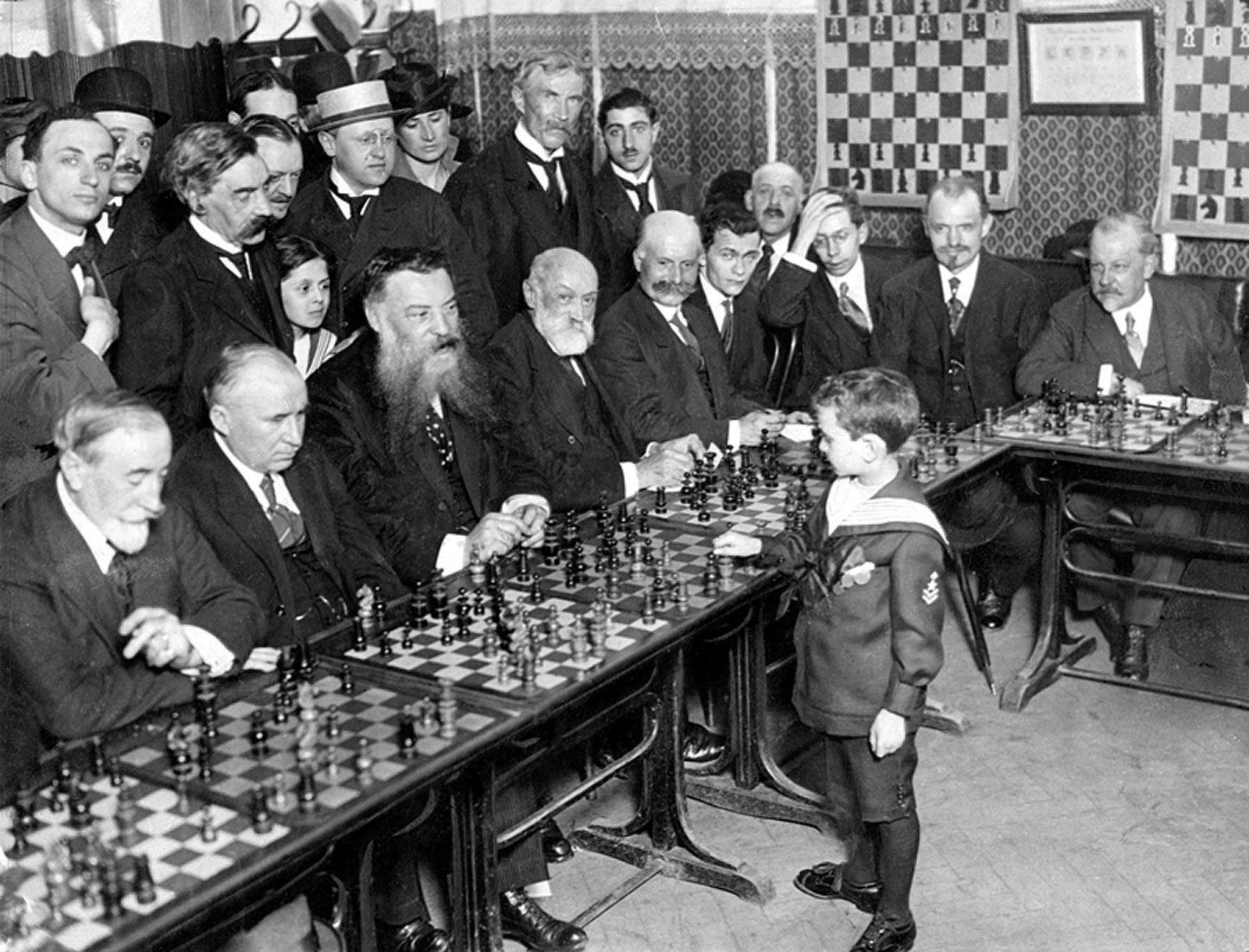If you constantly play Bach to the fetus in your womb, your child may turn out to be a virtuoso like Glenn Gould, and he might also be a pill popper who dies at 50 like Glenn Gould.
The line between nurturing a young mind and treating it as a scientific experiment isn’t so fine that it isn’t willfully crossed. The early 20th-century American prodigy William James Sidis had a father who ran him as fast as he could from birth until he ran aground. Such a steep fall from grace probably isn’t the average, but it is a risk.
While such extreme upbringings are often bad for children, in the macro they may be instructive in the area of nature vs. nurture. In the Chronicle of Higher Education, Paul Voosen’s “Bringing Up Genius” examines the story of the chess-playing Polgár sisters (who suffered no such ill effects) to ask if all children are potential prodigies. (Thanks to the Browser for pointing it out to me.) An excerpt:
Before Laszlo Polgár conceived his children, before he even met his wife, he knew he was going to raise geniuses. He’d started to write a book about it. He saw it moves ahead.
By their first meeting, a dinner and walk around Budapest in 1965, Laszlo told Klara, his future bride, how his kids’ education would go. He had studied the lives of geniuses and divined a pattern: an adult singularly focused on the child’s success. He’d raise the kids outside school, with intense devotion to a subject, though he wasn’t sure what. “Every healthy child,” as he liked to say, “is a potential genius.” Genetics and talent would be no obstacle. And he’d do it with great love.
…
There are three Polgár sisters, Zsuzsa (Susan), Zsofia (Sofia), and Judit: all chess prodigies, raised by Laszlo and Klara in Budapest during the Cold War. Rearing them in modest conditions, where a walk to the stationery store was a great event, the Polgárs homeschooled their girls, defying a skeptical and chauvinist Communist system. They lived chess, often practicing for eight hours a day. By the end of the 1980s, the family had become a phenomenon: wealthy, stars in Hungary and, when they visited the United States, headline news.
The girls were not an experiment in any proper form. Laszlo knew that. There was no control. But soon enough, their story outgrew their lives. They became prime examples in a psychological debate that has existed for a century: Does success depend more on the accidents of genetics or the decisions of upbringing? Nature or nurture? In its most recent form, that debate has revolved around the position, advanced by K. Anders Ericsson, a psychologist at Florida State University, that intense practice is the most dominant variable in success. The Polgárs would seem to suggest: Yes.•
Tags: Paul Voosen

